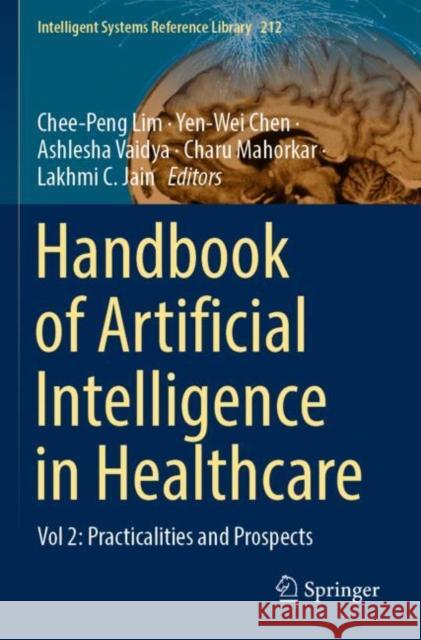Handbook of Artificial Intelligence in Healthcare: Vol 2: Practicalities and Prospects » książka
Handbook of Artificial Intelligence in Healthcare: Vol 2: Practicalities and Prospects
ISBN-13: 9783030836221 / Angielski / Miękka / 2022 / 422 str.
Handbook of Artificial Intelligence in Healthcare: Vol 2: Practicalities and Prospects
ISBN-13: 9783030836221 / Angielski / Miękka / 2022 / 422 str.
(netto: 651,74 VAT: 5%)
Najniższa cena z 30 dni: 655,41
ok. 16-18 dni roboczych.
Darmowa dostawa!
Artificial Intelligence (AI) has transformed many aspects of our daily activities. Health and well-being of humans stand as one of the key domains where AI has achieved significant progresses, saving time, costs, and potentially lives, as well as fostering economic resilience, particularly under the COVID-19 pandemic environments.This book is a sequel of the Handbook of Artificial Intelligence in Healthcare. The first volume of the Handbook is dedicated to present advances and applications of AI methodologies in several specific areas, i.e., signal, image, and video processing as well as information and data analytics. In this second volume of the Handbook, general practicality challenges and future prospects of AI methodologies pertaining to healthcare and related domains are presented in Part 1 and Part 2, respectively.It is envisaged that the selected studies will provide readers a general perspective on the issues, challenges, and opportunities in designing, developing, and implementing AI-based tools and solutions in the healthcare sector, bringing benefits to transform and advance health and well-being development of humans..
Artificial Intelligence (AI) has transformed many aspects of our daily activities. Health and well-being of humans stand as one of the key domains where AI has achieved significant progresses, saving time, costs, and potentially lives, as well as fostering economic resilience, particularly under the COVID-19 pandemic environments. This book is a sequel of the Handbook of Artificial Intelligence in Healthcare. The first volume of the Handbook is dedicated to present advances and applications of AI methodologies in several specific areas, i.e., signal, image, and video processing as well as information and data analytics. In this second volume of the Handbook, general practicality challenges and future prospects of AI methodologies pertaining to healthcare and related domains are presented in Part 1 and Part 2, respectively.It is envisaged that the selected studies will provide readers a general perspective on the issues, challenges, and opportunities in designing, developing, and implementing AI-based tools and solutions in the healthcare sector, bringing benefits to transform and advance health and well-being development of humans..











